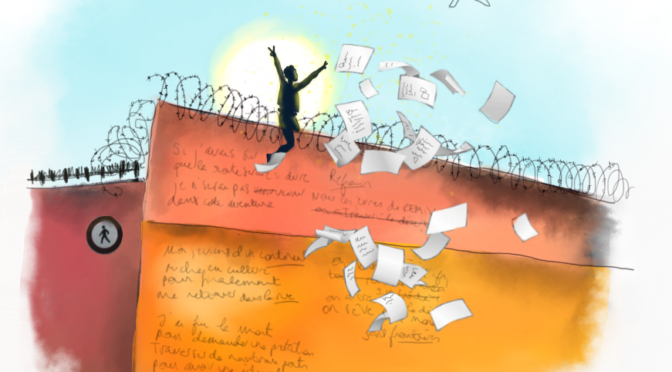YCM Journal- Young people and children on the move
https://omm.hypotheses.org/files/2020/05/Note-to-authors-YCM-journal-v1.pdf
Note to authors
All manuscripts –articles and research notes- must be submitted to Daniel Senovilla Hernández daniel.senovilla@univ-poitiers.fr
Articles and research notes (whether in English or French) must be unpublished work (unless previous agreement with the journal editors). Two members of the Editorial Board will anonymously review them. The Board’s decision (acceptance, acceptance with amendments, refusal) will be communicated within maximum 3 months after submission.
Contributions must be between 35,000 and 50,000 characters (including spaces). This length must include bibliography, footnotes, figures, tables and annex.
The title must be followed by the author’s full name, position and contact details.
Text should be typed without tabs (MS Word or Open Office) in 12 pt. Times New Roman. Footnotes (no endnotes) must be in 9 pt. Times New Roman.
Images and figures shall be submitted under separated files of standard format (JPG, PNG, etc.). Titles, sources and captions must be included in all cases.
References in the text must appear in brackets in the following format: (Name, date: pages). Ex: (Dupont and Jones, 2000: pp. 45-54)
Bibliography (only quoted references) must appear at the end of the text, in the following format:
Books
BRICAUD, J. (2006), Mineurs étrangers isolés: l’épreuve du soupçon, Collection Perspectives sociales, Ed. Vuibert, Paris, 256 pages.
Journal articles
SENOVILLA HERNANDEZ, D. (2009), Mineurs isolés étrangers en Espagne: une réponse juridique et institutionnelle conforme à la Convention international des droits de l’enfant?, in Migrations Société 21 (125), pages 161-173.
Book chapters
SENOVILLA HERNANDEZ, D & KANICS, J. (2010), Protected or merely tolerated? Models of reception and regularisation of unaccompanied and separated children in Europe, in SENOVILLA HERNANDEZ, D., TOUZENIS, K. and KANICS, J. Migrating alone: unaccompanied and separated children’s migration to Europe, Éditions UNESCO, Paris, pages 37-61.
Reports
UNITED NATIONS HIGH COMMISSIONER FOR REFUGEES (2008), UNHCR Guidelines on determining the best interest of the child, UNHCR, Geneva Office, 97 pages.

